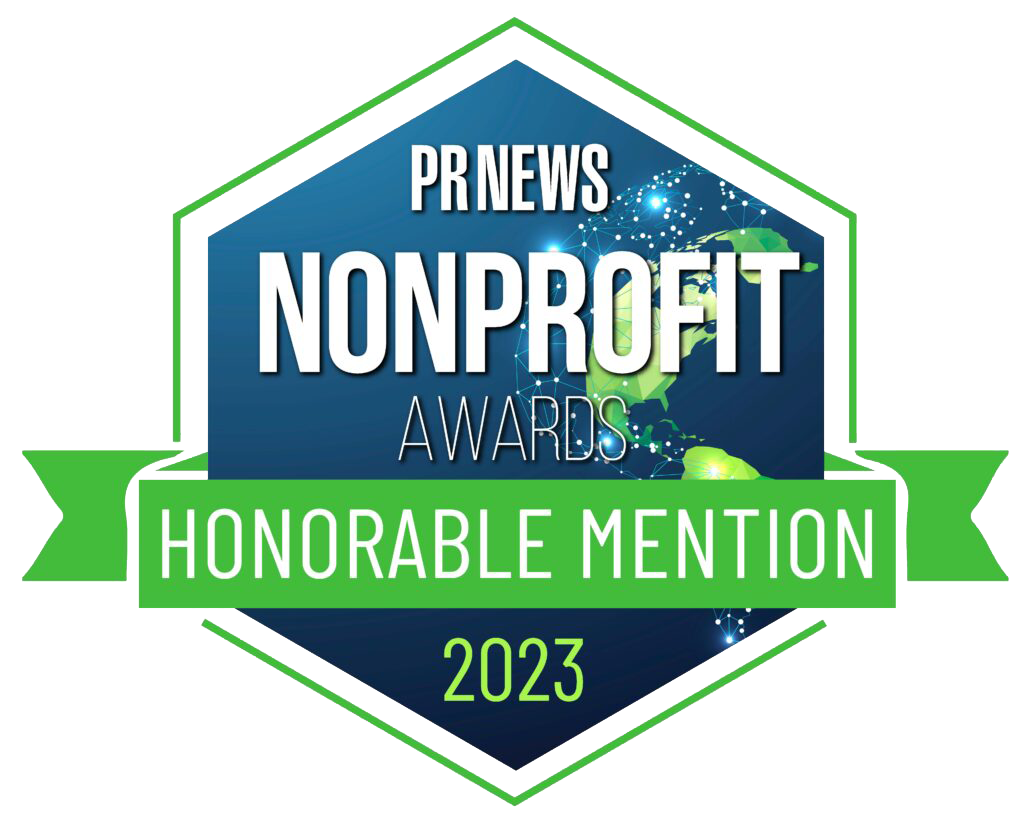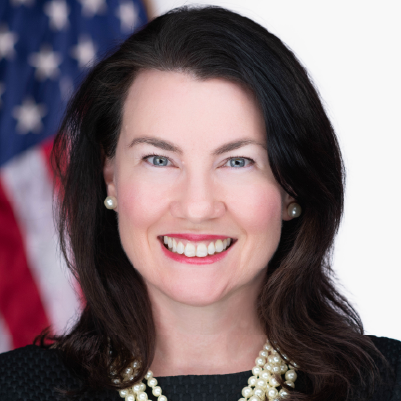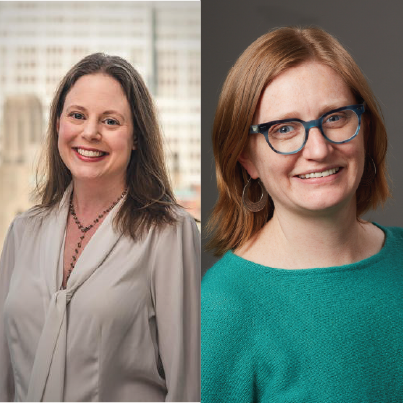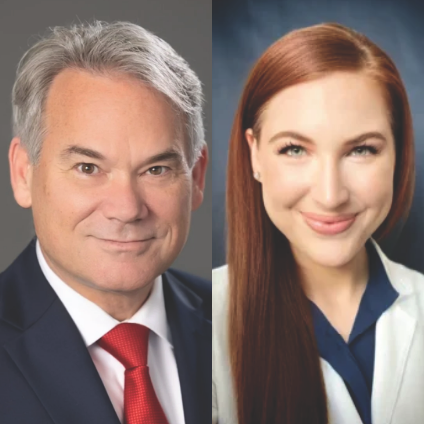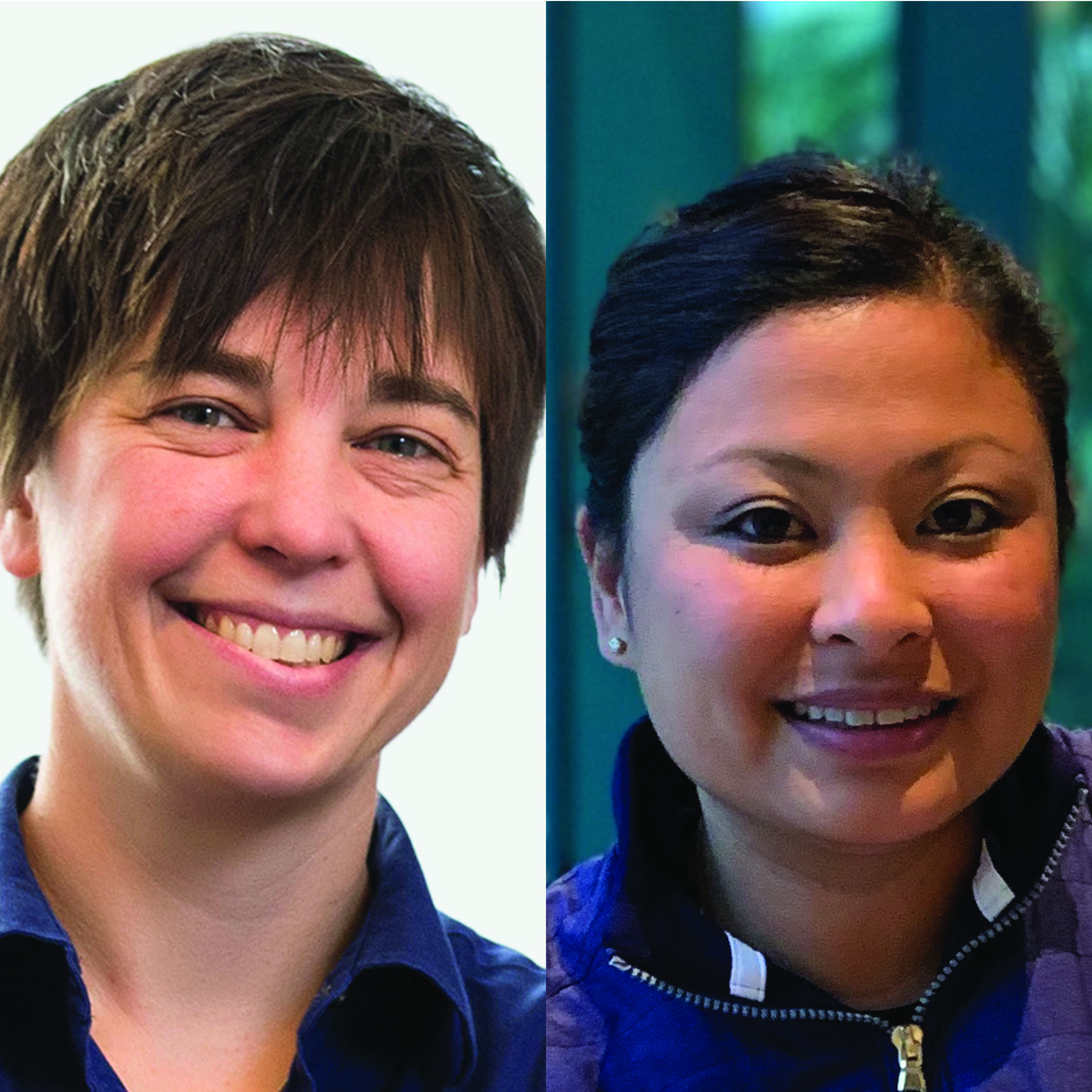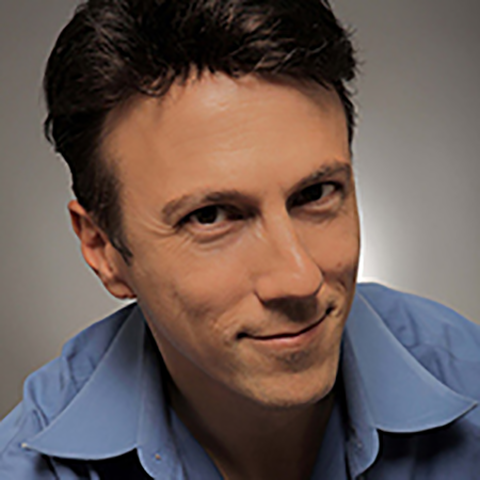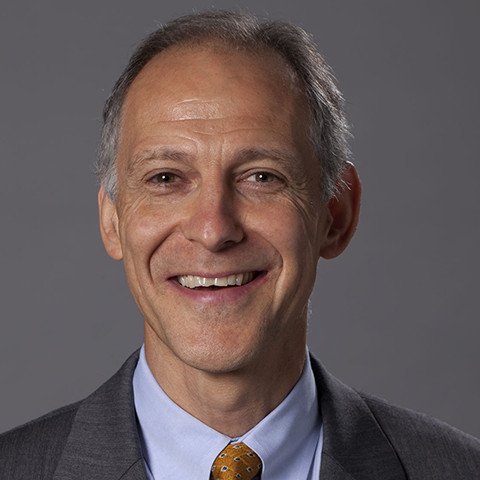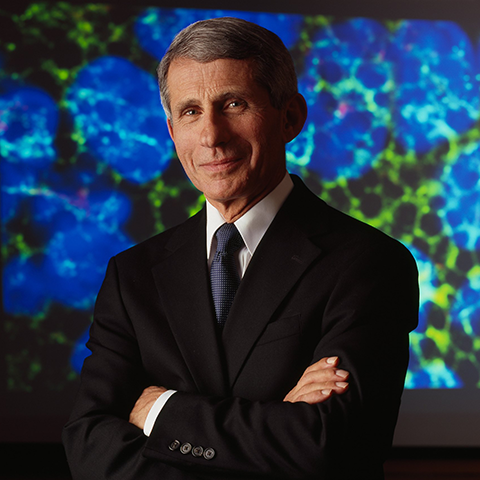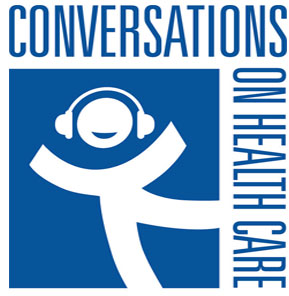THURSDAY, JULY 9, 2025
Dr. Oz’s Second-in-Command Explains Need for Medicaid Reimbursement Cuts as “Big Beautiful Bill” Passes
President Trump signed the “One Big Beautiful Bill Act” into law on July 4 and now leaders such as Stephanie Carlton are in charge of implementing it. She’s the deputy administrator and chief of staff at the Centers for Medicare & Medicaid Services.
Carlton and the administration see the law’s benefits because Medicaid reimbursement rates “were allowed to go up to commercial rates and states are at varying levels towards that cap. But as we sat back and looked at it and said well, ‘these are providers who are committing to society to vulnerable Americans that they’re going to help with their healthcare needs’…. but paying up to commercial rates kind of changes the focus of the program, where it becomes more about facilities profiting more than making sure patients are taken good care of.”
Carlton also answered questions from hosts Mark Masselli and Margaret Flinter shortly before Congress passed the bill. In addition, she discussed how they believe modern technology can help with new Medicaid work requirements, concerns about the National Health Service Corps and the administration’s plans to lower prescription drug costs.
THURSDAY, MARCH 13, 2025
Michael J. Fox’s Foundation Makes Parkinson’s Breakthrough
Emmy award-winning actor Michael J. Fox shocked the world when he announced over 25 years ago that he had been diagnosed with Parkinson’s disease. Since then, he’s devoted his talents to eliminating Parkinson’s in our lifetime.
Researchers with The Michael J. Fox Foundation now have impressive progress to report. They’ve developed a biomarker test to measure the protein alpha synuclein that’s helping to diagnose Parkinson’s with more than 90% accuracy, even proving effective at identifying people who may later develop the disease.
“I think this is going to be a game changer for clinical trials and for patient care in the future,” says Samantha Hutten, Ph.D., a neuroscientist and vice president of translational research at the foundation. “But right now it is really a research tool that can be used to inform research and also how we design clinical trials.”
A positive test, for example, may not be able to tell patients which type of alpha synuclein disease they have, whether it’s Parkinson’s, Lewy body dementia or multiple systems atrophy.
“I think there’s huge excitement around it, particularly about the impact on clinical trials,” says Rebecca Miller, Ph.D., an associate professor at Yale University’s School of Medicine who was diagnosed with Parkinson’s in 2013 at age 38. “We’re all looking for a drug that will really be disease-modifying.”
Hutten tells hosts Mark Masselli and Margaret Flinter that the biomarker test is an “all-comers” study, meaning patients can participate if they’ve been diagnosed or have family with Parkinson’s, or have risk factors like loss of sense of smell or REM sleep behavior disorder.
The test comes at a crucial time: the global rate of Parkinson’s has doubled since Fox first revealed his condition.
FRIDAY, DECEMBER 20, 2024
What Elon Musk & Peter Thiel Invest In to Make Lives Longer
Billionaires who dream of extending human life, including Elon Musk, believe they will have very supportive partners in the incoming Trump administration. They’re excited that President Trump has nominated Jim O’Neill for the number two spot at the U.S. Dept. of Health and Human Services because of his history in the anti-aging movement.
David Gobel, the co-founder and CEO of the Methuselah Fund, says, “Jim O’Neill really understands the value of avoiding the suffering…of diseases that don’t actually have to happen if aging is held back. Robert F. Kennedy, Jr., and other nominees are very much in line with the idea of holding aging back by whatever means.” President Trump has nominated Kennedy to serve as HHS secretary.
But “Conversations on Health Care” recently spoke with S. Jay Olshansky, Ph.D., a professor at the University of Illinois at Chicago, who questioned private and public dollars going to such efforts. “We’ll be lucky if 5% of the age cohort makes it to 100,” he said. Olshansky and his colleagues have presented data that humans are approaching a biologically-based limit to life.
Join hosts Mark Masselli and Margaret Flinter for this look into the world of life extension and how Trump administration officials could push the country to embrace these unconventional practices. In addition, learn more about the first longevity patient protocol from Danielle Ruiz, MSN, APRN, AGNP-C, CEO and Medical Director, Everest Health.
THURSDAY, OCTOBER 17, 2024
How Groundbreaking NIH Research is Expanding to Birth-to-Four-Year-Olds
For nearly the first decade of the National Institutes of Health’s “All of Us” Research Program — aimed at increasing diversity in genetic research — a major component was missing: kids.
“Children are approximately 24% of our population in the U.S. and 100% of our future,” Dr. Sara Van Driest, director of pediatrics for NIH’s All of Us Program, told hosts Mark Masselli and Margaret Flinter. “In order to provide them with the very best care for the future and have them benefit from this resource, we need to include them.”
The journey is personal for Katrina Yamazaki, Ph.D., principal investigator for Community Health Center, Inc., in Connecticut, a partner organization in All of Us. Yamazaki and her husband adopted three boys through the foster care system.
“We don’t know a whole lot about their … biological families’ medical history,” Yamazaki said. “The idea that this program will one day be able to provide some of [that] missing information to me and my husband, in order to become health advocates for our children is really important to me.”
The NIH in August began limited enrollment in the program for children age 4 and under.
“We started with that youngest age group so we can follow them the longest,” Van Driest said.
Community Health Center, Inc., for its part, is partnering with community-based organizations such as the Hartford Public Library to build trust, raise awareness of the project and make a fun atmosphere through activities.
All of Us intends to change what might be seen as a “one-size-fits-all” approach to health care. It aims to encompass 1 million individuals of diverse backgrounds but doesn’t focus on particular diseases or conditions, Van Driest said. The diversity, too, goes beyond culture, touching geography, age and socioeconomic status.
“One of the goals of research is to connect the dots,” she said. Given the scope of the project, “there will be so many dots that we’ll be able to connect,” Van Driest said.
“If we fail to include a group of individuals or an aspect of diversity, we miss out on that uniqueness. That limits us in what we’re able to understand about humanity in general,” she said. “It also limits research and learning about that group of individuals. And it limits downstream how clinicians can care about individuals and give them the very best possible outcomes.”
MONDAY, AUGUST 24, 2020
Pandemic XPrize Competition: Dr. Daniel Kraft on Quest to Leverage Tech and AI For Solutions to Address COVID-19
This week, hosts Mark Masselli and Margaret Flinter speak with Dr. Daniel Kraft, physician-scientist, inventor, entrepreneur and Chair of the XPrize Pandemic Alliance Task Force, which is holding competitions to develop better tools for addressing COVID-19. Dr. Kraft, who is also founder and Executive Director of Exponential Medicine, looks at emerging developments that will lead to better rapid tests, masks as well as tech and AI-enabled interventions that will offer earlier diagnosis of infection, and better treatment and management of diseases like coronavirus in the future.
MONDAY, JULY 20, 2020
Pandemic: Dr. Zeke Emanuel on the Timeline for America Returning to ‘Normal’
This week, hosts Mark Masselli and Margaret Flinter speak with Dr. Zeke Emanuel, Chair of the Department of Medical Ethics at the University of Pennsylvania. A former advisor to the Obama Administration, he predicts the pandemic won’t be fully brought under control until late next year, when an approved vaccine can be successfully deployed across hundreds of millions of Americans. He discusses his new book, “Which Country Has the Best Healthcare” addressing the failure of America’s leadership to adequately address the pandemic.
THURSDAY, FEBRUARY 20, 2020
COVID-19’s Global Spread: NIH's Lead on Coronavirus, Dr. Anthony Fauci, Talks about the Growing Epidemic and Whether America is Safe
This week, hosts Mark Masselli and Margaret Flinter speak with Dr. Anthony Fauci, globally renowned epidemiologist and Director of the National Institute of Allergy and Infectious Diseases at the National Institutes of Health. Dr. Fauci shares the latest findings on COVID-19, a new Coronavirus strain that has spread to nearly 30 countries and left thousands dead. He discusses how travel restrictions and local quarantines in China may have averted a bigger global health catastrophe and looks at the rapid development of vaccines already in the pipeline.
MONDAY, NOVEMBER 18, 2019
America's Growing Diabetes Threat: American Diabetes Association's Dr. Louis Philipson on Challenges and Breakthroughs for Nation's 30 Million Diabetics
This week, hosts Mark Masselli and Margaret Flinter speak with Dr. Louis Philipson, President of Medicine and Science at the American Diabetes Association and Director of the Kovler Diabetes Center at the University of Chicago who addresses the enormous public health threat of 30 million Americans diagnosed with diabetes as well as 70 million more with pre-diabetes. He examines the challenge of helping patients manage their conditions and talks about promising new research on genomics-based precision medicine approaches to treating certain types of diabetes.
MONDAY, SEPTEMBER 16, 2019
Quest to Improve Maternal And Childhood Health: Dr. Diana Bianchi Talks About Research Mission at the NICHD
This week, hosts Mark Masselli and Margaret Flinter speak with Dr. Diana Bianchi, Director of the Eunice Kennedy Shriver National Institute of Child Health and Human Development at the NIH, the largest funder of health research in the world. She oversees a $1.5 billion budget conducting research in all phases of child health from maternal and reproductive health, to infant diagnostics, adolescence into adulthood, and all people with intellectual disabilities.
MONDAY, MAY 6, 2019
Ending HIV/AIDS in America and Confronting the Resurgence of Measles: CDC Director Dr. Robert Redfield on Public Health Solutions
This week hosts Mark Masselli and Margaret Flinter speak with Dr. Robert Redfield, Director of the Centers for Disease Control and Prevention which is dedicated to eradicating the AIDS Virus as we know it in this country, dramatically reducing new infections within a decade. He also addresses the domestic and global spike of previously eradicated diseases like measles, resulting from a growing anti-vaccination movement.
MONDAY, DECEMBER 31, 2018
Starting 2019 Right, Lifestyle as Medicine: Dr. David Katz on Power of Nutrition in Prevention and Health
This week, hosts Mark Masselli and Margaret Flinter speak with Dr. David Katz, globally renowned lifestyle medicine expert and Director of Yale University's Prevention Research Center where his research focuses on advancing diet and nutrition as a powerful tool to reduce the burden of chronic disease. The founder of the True Health Initiative, he discusses his most recent book, "The Truth About Food", a comprehensive reference book for clinicians and patients on the science of nutrition.
MONDAY, NOVEMBER 12, 2018
Dr. Leana Wen, Day One: Charting Planned Parenthood's Course for Protecting Women's Health
This week, hosts Mark Masselli and Margaret Flinter speak with Dr. Leana Wen, newly appointed President of the Planned Parenthood Federation of American. Dr. Wen talks about successful interventions she launched as Baltimore's Health Commissioner on opioids, maternal mortality and gun violence, planning to take her tough public health approach to addressing challenges to women's health and reproductive rights in America.
MONDAY, OCTOBER 1, 2018
America's Addiction Crisis: Treatment Research Institute Founder Dr. Tom McLellan on Science-Based Approach to Drug Treatment and Policy
This week, hosts Mark Masselli and Margaret Flinter speak with renowned addiction expert Dr. Tom McLellan, Founder and CEO of the Treatment Research Institute, committed to promoting evidence-based approaches to drug treatment and drug policy. He discusses addiction as a chronic disorder, the effectiveness of Medication Assisted Treatment (MAT) for opioid and alcohol addiction, and the need to improve addiction medicine training for clinicians and health care providers.
MONDAY, AUGUST 13, 2018
Millions Served: NACHC's Dan Hawkins on Community Health Centers Delivering Care to Vulnerable Americans
This week, hosts Mark Masselli and Margaret Flinter speak with Dan Hawkins, Sr. VP for Public Policy and Research at the National Association of Community Health Centers (NACHC), which supports the thousands of chc's providing care for 27 million underserved Americans. They discuss the care model that embeds behavioral and dental care within primary care, the growing reliance on Nurse Practitioners as front line clinicians, and the training, innovation and quality care the nation's health centers provide.
MONDAY, JUNE 18, 2018
Purdue Pharma and the Opioid Epidemic: Writer Barry Meier Unveils OxyContin's Pivotal Role
This week, hosts Mark Masselli and Margaret Flinter speak with Pulitzer Prize winning writer Barry Meier, author of "Pain Killer: An Empire of Deceit and the Origin of America's Opioid Epidemic," on Purdue Pharma, makers of the narcotic OxyContin, and the pivotal role they played in "the greatest public health crisis of the 21st Century."
MONDAY, MAY 21, 2018
Dr. David Blumenthal of the Commonwealth Fund on the HITECH Act, ACA and High Cost of American Health Care
This week hosts Mark Masselli and Margaret Flinter speak with Dr. David Blumenthal, President of the Commonwealth Fund, a philanthropy dedicated to research supporting a high-functioning health care system. He discusses expanded coverage under the Affordable Care Act, the vital role of the HITECH Act in adoption of electronic health records in the US, and the Fund's ongoing research comparing US health costs to other countries.
MONDAY, JUNE 20, 2016
Dr. Emmanuel d'Harcourt, Senior Health Director, International Rescue Committee
This week, hosts Mark Masselli and Margaret Flinter speak with Dr. Emmanuel d'Harcourt, Senior Health Director at the International Rescue Committee, an international aid organization dedicated to mitigating the plight of the world's 60 million refugees. Dr. d'Harcourt discusses the challenges of coordinating care among the world's NGOs and the World Health Organization and the need to build a more integrated aid infrastructure.

